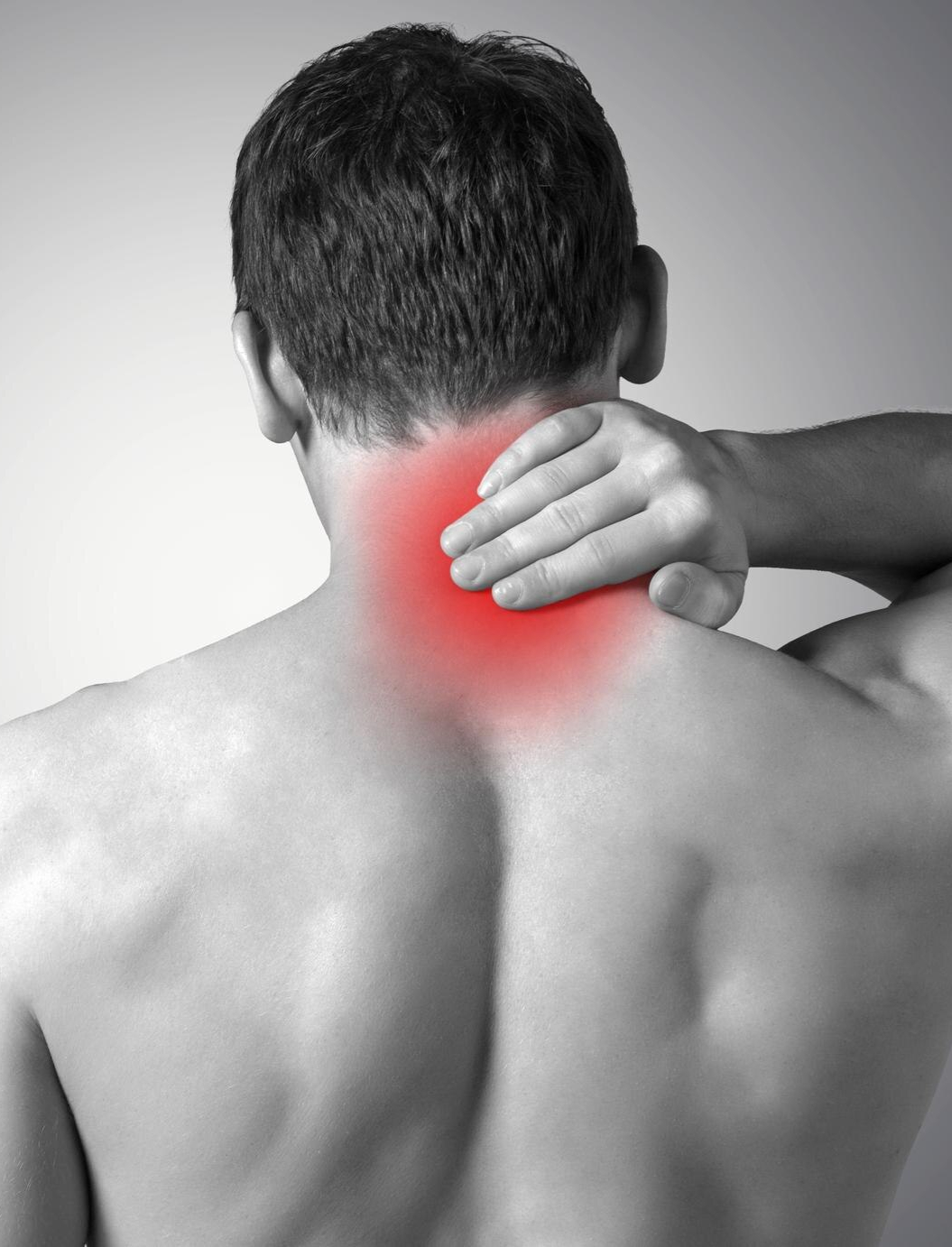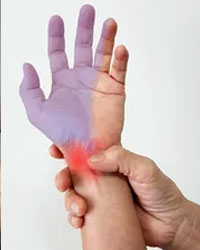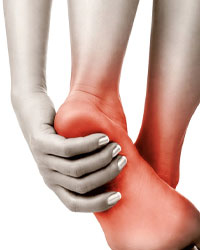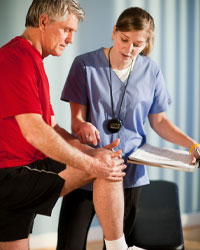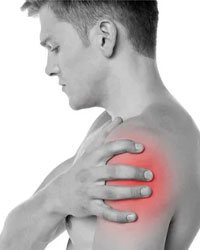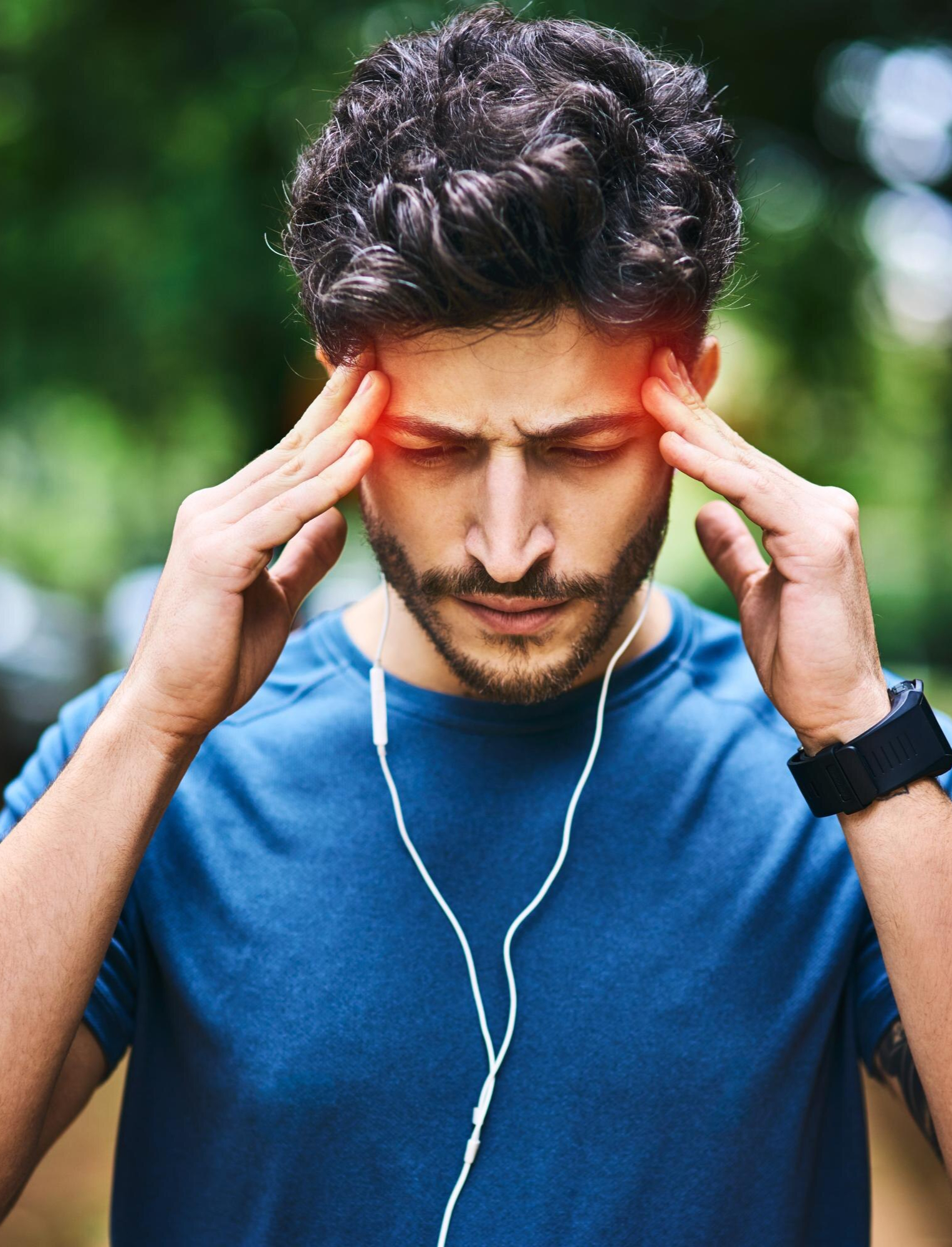Concussion in Edmonton
A concussion is a type of mild traumatic brain injury (TBI) that occurs when the brain is shaken inside the skull, often following a blow to the head or a sudden jolt to the body. While concussions are generally not life-threatening, they can cause a range of symptoms, from headaches and dizziness to difficulty concentrating and memory issues. Recovery from a concussion varies, but physiotherapy can be a vital part of the rehabilitation process, helping individuals manage symptoms, regain cognitive function, and return to normal activities safely. Our clinic in Edmonton provides physiotherapy services to support concussion recovery.
Common Symptoms of Concussion
The symptoms of a concussion can vary from person to person, and some may appear immediately while others may develop hours or even days after the injury. Common symptoms include:
- Headaches or pressure in the head
- Dizziness or a sensation of spinning
- Nausea or vomiting
- Sensitivity to light or noise
- Difficulty concentrating or feeling mentally “foggy”
- Memory problems, such as forgetting the events around the injury
- Fatigue or drowsiness
- Mood changes, including irritability or anxiety
- Sleep disturbances, such as trouble falling asleep or sleeping too much
These symptoms can affect daily activities, work, and social interactions, making it essential to seek appropriate care to manage them.
How Concussions Affect the Body
A concussion typically affects brain function by disrupting normal signaling between brain cells. The brain’s ability to function properly may be temporarily impaired due to this disruption. This can affect several aspects of an individual’s health, including:
- Cognitive function: Difficulty with concentration, memory, and processing information
- Balance and coordination: The brain’s role in controlling balance may be impacted, leading to unsteadiness or difficulty walking
- Mood and behavior: Emotional regulation can be affected, leading to irritability, anxiety, or depression
- Sensory perception: Heightened sensitivity to light, sound, or even touch
Each person’s experience with a concussion can differ, and symptoms may evolve over time. The recovery process often involves a combination of rest and gradual reintroduction to physical and mental activities.
The Role of Physiotherapy in Concussion Recovery
Physiotherapy is a critical component in concussion rehabilitation, particularly when symptoms persist beyond the initial rest period. While rest is essential during the first phase of recovery, physiotherapy can help individuals return to normal activities safely and progressively. Key physiotherapy techniques for concussion recovery include:
Vestibular Rehabilitation Therapy (VRT)
Vestibular Rehabilitation Therapy is designed to address balance and dizziness issues often associated with concussions. This therapy involves specific exercises that target the vestibular system (the part of the inner ear responsible for balance) to reduce dizziness and improve coordination.
Cervicogenic Therapy
Sometimes, concussions also cause neck-related symptoms, such as pain or stiffness. Cervicogenic therapy addresses neck pain, muscle tightness, and postural issues that may arise after a concussion. This can help alleviate headaches and restore proper neck function.
Cognitive Rehabilitation
Concussions can affect memory, concentration, and mental clarity. Physiotherapists can provide cognitive rehabilitation exercises that focus on improving attention, memory, and other cognitive functions. This may include memory exercises, concentration tasks, and brain games to help retrain the brain.
Gradual Return to Physical Activity
A significant part of concussion recovery is safely reintroducing physical activities. Physiotherapists can design a progressive exercise plan that helps rebuild strength, endurance, and cardiovascular fitness, while avoiding overexertion that could worsen symptoms.
Eye and Vision Therapy
Concussions can impact visual processing, leading to problems like blurry vision or difficulty focusing. Physiotherapists can incorporate eye exercises to help with visual tracking, focusing, and coordination, improving overall visual function.
Education and Lifestyle Modifications
Physiotherapists also provide education on concussion management, including advice on sleep hygiene, managing stress, and avoiding situations that could put an individual at risk of further injury.
Recovery and Return to Daily Activities
Recovery from a concussion should be gradual, and returning to daily activities, including work and exercise, should be done with caution. A graduated plan, overseen by a physiotherapist, can help ensure a safe return to routine activities. This process may include:
- Rest: Initial rest is essential for recovery, particularly in the first 24 to 48 hours after the injury.
- Gradual reintroduction of activity: Once symptoms begin to improve, individuals can slowly reintroduce light physical activity, cognitive tasks, and social interactions.
- Monitoring symptoms: Any return of symptoms should be monitored, and adjustments to the recovery plan should be made if needed.
When to Seek Physiotherapy for a Concussion
It is important to seek medical advice after a concussion. If symptoms persist for more than a few days or worsen, physiotherapy can be a critical part of recovery. Symptoms that may indicate the need for physiotherapy include:
- Persistent dizziness, headaches, or balance issues
- Difficulty concentrating or experiencing “brain fog”
- Ongoing fatigue or trouble sleeping
- Difficulty returning to physical activities or work
- Neck pain or stiffness that affects mobility
Support for Concussion Recovery in Edmonton
Our clinic in Edmonton provides physiotherapy services to assist with concussion recovery. We focus on a comprehensive approach to treatment, addressing balance, cognitive function, and physical symptoms to help individuals regain normal functioning safely.
If you or someone you know is dealing with the effects of a concussion, contact us today to schedule an appointment and start the recovery process.

